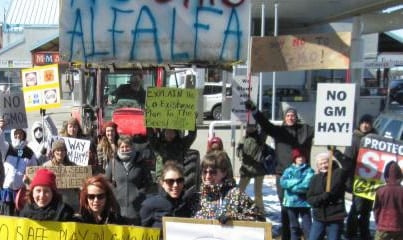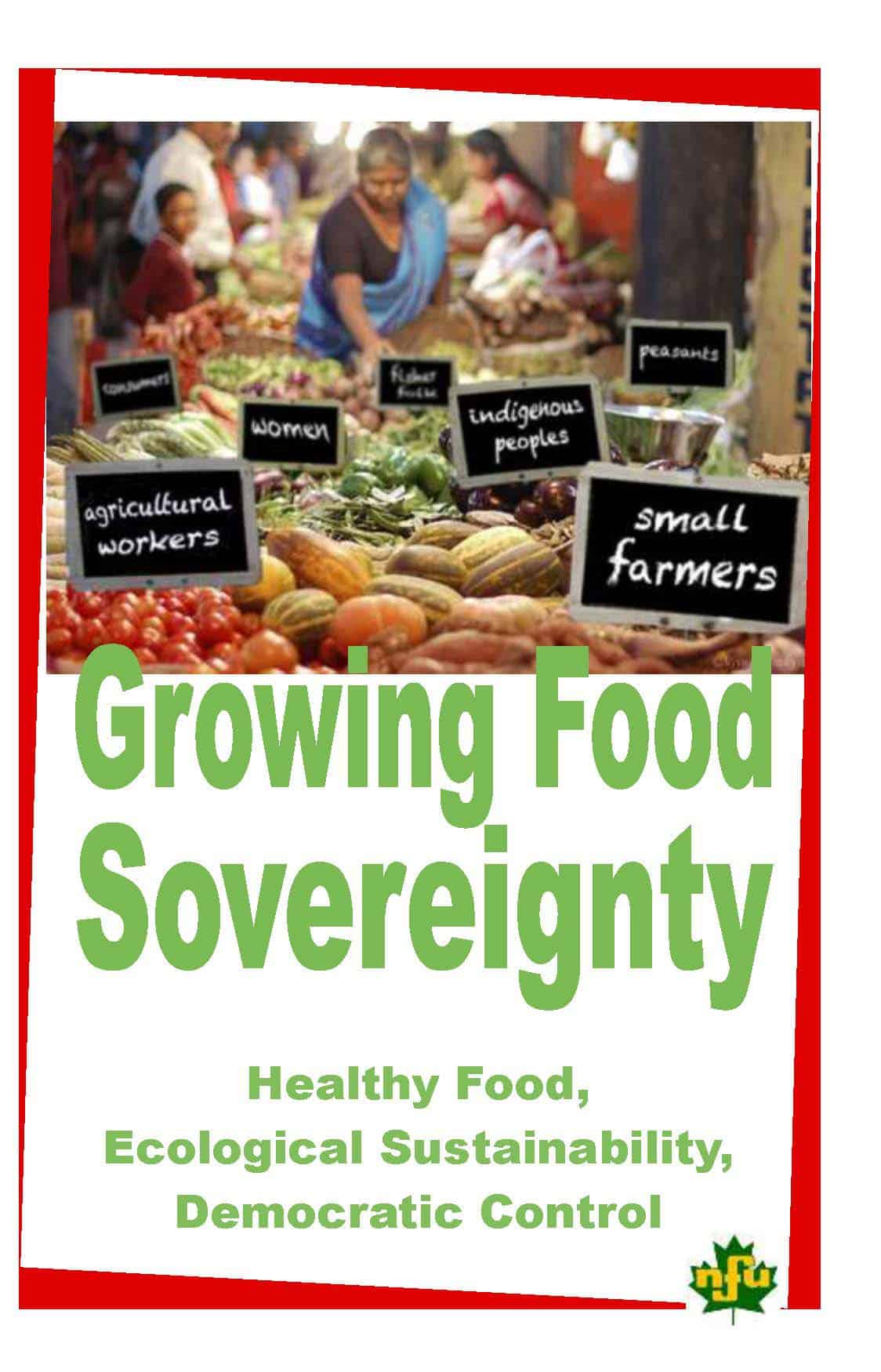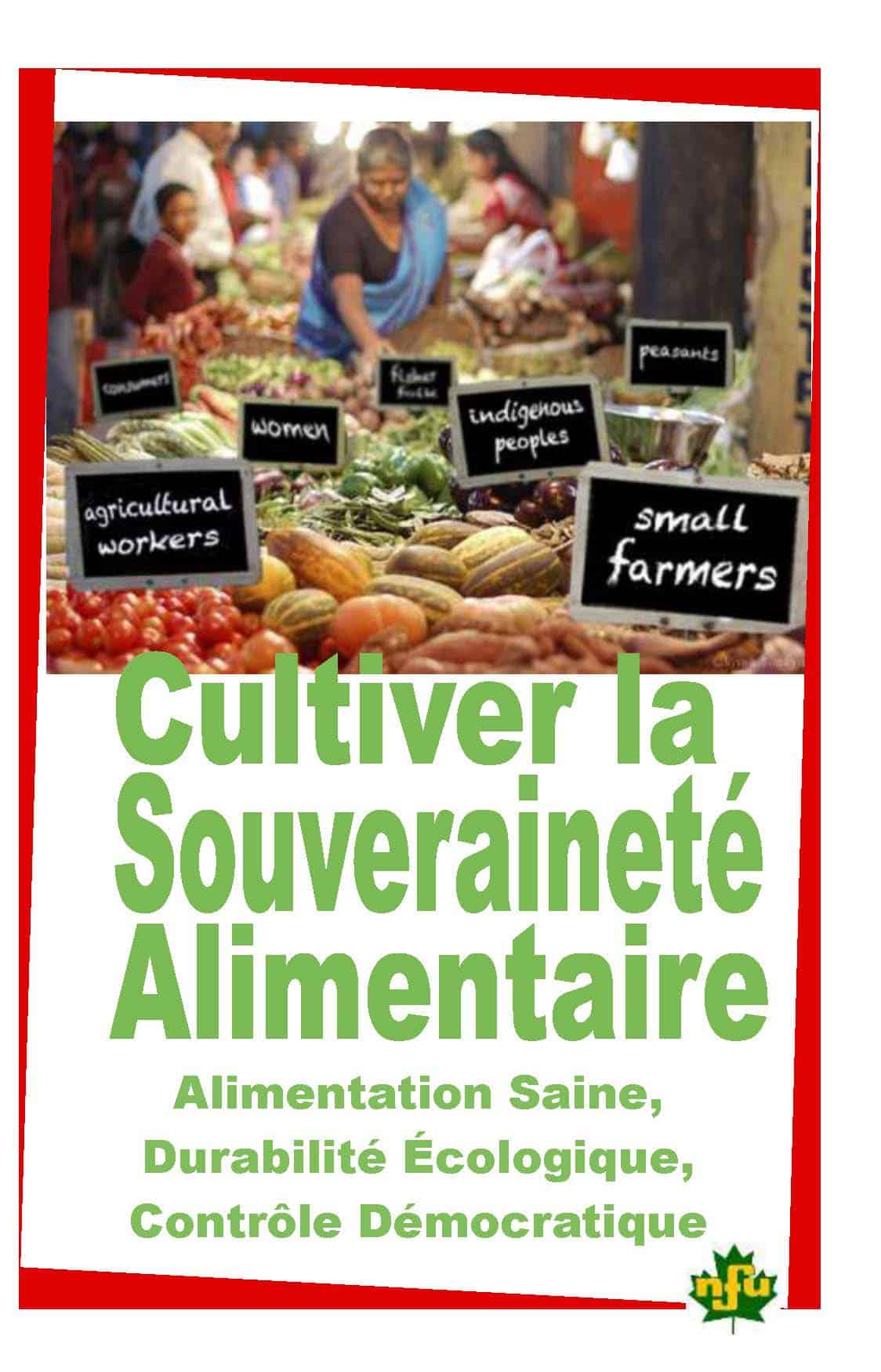
Food Sovereignty
The National Farmers Union and other family farm/peasant, indigenous and rural workers’ organizations work within the global movement, La Vía Campesina, to resist the global trade agreements and the WTO, stop the destruction of communities, cultures, and environments, and build an alternative: food sovereignty.
Food sovereignty is about empowering people – farmers and eaters – to make the important decisions about food and agriculture. It is the condition where people define their own food and agriculture systems to produce healthy and culturally appropriate food for people through ecologically sound and sustainable methods. The concept of food sovereignty is expressed through six pillars:
Food Sovereignty:
- focuses on food for people
- values food providers
- localises food systems
- puts control locally
- builds knowledge and skills
- works with nature
Nettie Wiebe, former NFU President, was involved in the formation of the LVC and the articulation of its aims:
“… I recall long, profound, sometimes contentious, discussions going late into the nights as we struggled to find a term that would capture what we were fighting for. The conventional term of “food security” was inadequate. This was about more than producing more food or distributing it more efficiently. We were grappling with fundamental questions of power and democracy: Who controls food producing resources such as land, water, seeds and genetics and for what purposes? Who gets to decide what is grown, how and where it is grown and for whom? We needed to have language that expressed the political dimensions of our struggle.
Food Sovereignty is such a term. It provokes the necessary discourse about power, freedom, democracy, equality, justice, sustainability and culture. Food is taken out of the realm of being primarily a market commodity and re-embedded in the social, ecological, cultural and local contexts as a source of nutrition, livelihood, meaning and relationships.” Nyéléni Newsletter | No.30
In 2007, the NFU participated in the historic Nyéléni International Forum on Food Sovereignty in Mali where over 500 members of LVC organizations from 80 countries came together to build a global movement for food sovereignty. The forum participants further refined their understanding of this new paradigm of food and agriculture relationship in the Nyéléni Declaration.
Food sovereignty is the right of peoples to healthy and culturally appropriate food produced through ecologically sound and sustainable methods, and their right to define their own food and agriculture systems. It puts the aspirations and needs of those who produce, distribute and consume food at the heart of food systems and policies rather than the demands of markets and corporations. It defends the interests and inclusion of the next generation. It offers a strategy to resist and dismantle the current corporate trade and food regime, and directions for food, farming, pastoral and fisheries systems determined by local producers and users. Food sovereignty prioritises local and national economies and markets and empowers peasant and family farmer-driven agriculture, artisanal – fishing, pastoralist-led grazing, and food production, distribution and consumption based on environmental, social and economic sustainability. Food sovereignty promotes transparent trade that guarantees just incomes to all peoples as well as the rights of consumers to control their food and nutrition. It ensures that the rights to use and manage lands, territories, waters, seeds, livestock and biodiversity are in the hands of those of us who produce food. Food sovereignty implies new social relations free of oppression and inequality between men and women, peoples, racial groups, social and economic classes and generations.
Nyéléni Declaration
Download our booklet on Food Sovereignty
The International Program Committee (IPC) of the NFU has produced a 12-page booklet about food sovereignty. You can download it in English and French by clicking on the images below. If you would like to get multiple copies of the booklet you can request the printers’ version here for printing at your local print shop.
In 2008 an ambitious three-year project, The People’s Food Policy Project (PFPP), developed and increased public awareness of the concept of Food Sovereignty in Canada society by involving over 3,000 people from all across Canada in intentional, often challenging, conversations about food policy.
The project honored the work of the 1970s’ Peoples Food Commission, which highlighted linkages between social justice, ecological sustainability and farmer livelihoods in its final report The Land of Milk and Money (PDF).
In 2011 the PFPP published a summary report – Resetting the Table (PDF) – along with a series of more detailed discussion papers on key policy areas. The work begun by the People’s Food Policy Project continues through Food Secure Canada, its member groups and affiliates and community-based organizations, including the NFU.
Stay informed. National and local farm news, research, policy and advocacy efforts, straight to your inbox.
Subscribe to email updates from the National Farmers Union.
Do you work in media? Contact communications@nfu.ca for media-specific communications.

